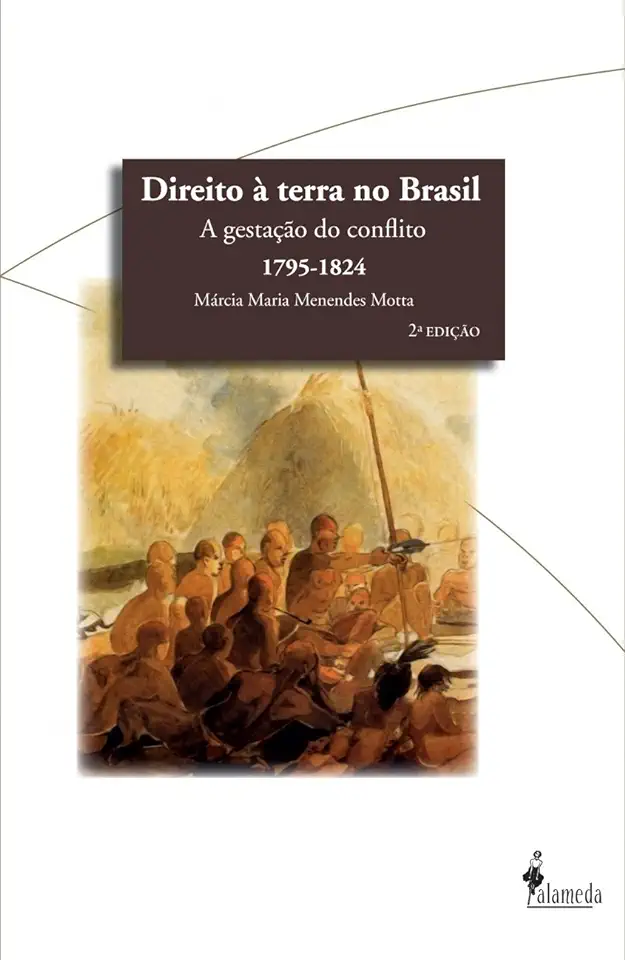
Land Rights in Brazil - The Gestation of the Conflict - 1795-1824 - Márcia Maria Menendes Motta
Land Rights in Brazil: The Gestation of the Conflict - 1795-1824 by Márcia Maria Menendes Motta
A Comprehensive Exploration of Land Rights in Brazil
In her groundbreaking book, "Land Rights in Brazil: The Gestation of the Conflict - 1795-1824," Márcia Maria Menendes Motta delves into the intricate history of land rights in Brazil, shedding light on the complex dynamics that shaped the country's land tenure system. With meticulous research and engaging storytelling, Motta presents a comprehensive analysis of the legal, social, and economic factors that influenced land ownership and distribution during a pivotal period in Brazilian history.
Unraveling the Roots of Conflict
Motta's work offers a unique perspective on the origins of land conflicts in Brazil, tracing their roots back to the colonial era and the establishment of the Portuguese land grant system. She examines the impact of the Portuguese Crown's policies on land distribution, the emergence of large landed estates, and the dispossession of indigenous communities and small farmers. By exploring the historical context, Motta provides a deeper understanding of the structural inequalities that persist in Brazil's land tenure system to this day.
A Journey Through Legal and Institutional Frameworks
Motta's analysis extends to the legal and institutional frameworks that governed land rights in Brazil during the late 18th and early 19th centuries. She examines the evolution of land laws, the role of the judiciary in shaping land rights, and the challenges faced by marginalized communities in securing their land rights. By unraveling the complexities of the legal landscape, Motta highlights the systemic barriers that hindered equitable land distribution and contributed to social tensions.
The Struggle for Land and Social Justice
"Land Rights in Brazil" also sheds light on the social movements and resistance strategies employed by indigenous communities, quilombolas (communities descended from escaped slaves), and small farmers in their fight for land rights. Motta explores the diverse forms of resistance, including legal battles, land occupations, and collective mobilization. By giving voice to the struggles of these marginalized groups, Motta emphasizes the urgency of addressing land inequality and promoting social justice in Brazil.
A Call for Land Reform and Sustainable Development
Motta concludes her book by emphasizing the need for comprehensive land reform as a means to address the historical injustices and structural inequalities that continue to plague Brazil's land tenure system. She argues that land reform is essential for promoting sustainable development, reducing poverty, and fostering social inclusion. By presenting a well-researched and compelling case for land reform, Motta's work serves as a call to action for policymakers, scholars, and activists committed to creating a more just and equitable society in Brazil.
Why You Should Read This Book
"Land Rights in Brazil: The Gestation of the Conflict - 1795-1824" is a must-read for anyone interested in understanding the historical roots of land conflicts in Brazil and the ongoing struggle for land rights. With its comprehensive analysis, engaging narrative, and thought-provoking insights, Motta's book offers a valuable contribution to the fields of history, law, and social justice. Whether you are a scholar, a policymaker, an activist, or simply someone interested in Brazil's complex social and political dynamics, this book will provide you with a deeper understanding of the challenges and opportunities facing the country as it grapples with land inequality and the pursuit of a more just and sustainable future.
Enjoyed the summary? Discover all the details and take your reading to the next level — [click here to view the book on Amazon!]